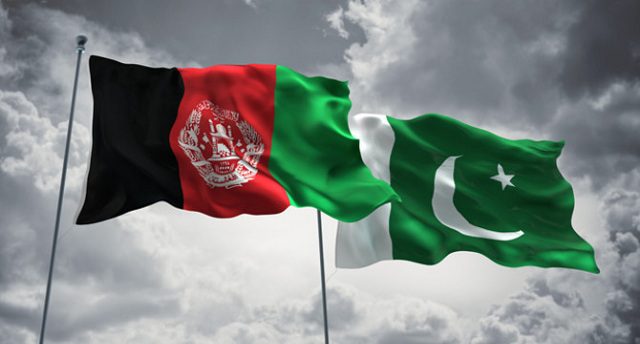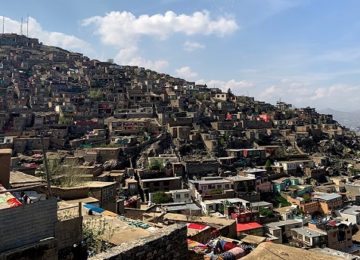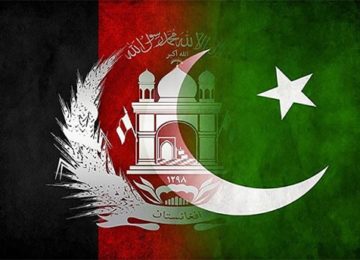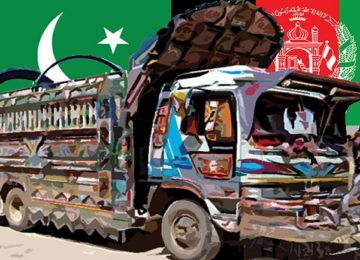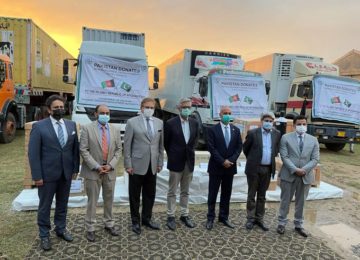Pakistan has not fully utilized its untapped potential for trade and economic connectivity with Afghanistan. Bureaucratic hindrances and redundant procedures upset the Afghan business community and lead to a substantial decline in bilateral trade. The economic constraints also affect peace in the region.
Relations between Pakistan and Afghanistan have been through frequent ebbs and flows, a litany of the love-and-hate relationship, and lost opportunities on both sides, particularly by Pakistan’s predatory bureaucracy. Consider the following: Pakistan has been the core conduit for Afghanistan’s transit trade and the central point of supplies of essentials. That is why at least 350 industrial units with Afghan ownership, partnership, or shareholding are operational in Pakistan. The production of even these units often encounters administrative hurdles – mainly for extraction by officials – police, customs, intelligence, etc.
This way, the self-serving bureaucracy has denied the country countless opportunities for investment by big Afghan traders, causing an utter failure in capitalizing on the desire for investments in Pakistan for supply onwards. Even those staying here on long-term visas cannot open and operate bank accounts – thanks to the stringent and extractive taxation measures, most of these potential investments moved to UAE and Turkey. It also meant a loss of investment and employment opportunities for Pakistanis.
Compare this with Egypt; after the Camp David peace accords, Cairo allowed Israel to set up multiple industrial zones in the Senai area. These zones now constitute the bedrock of the Egyptian economy. Similarly, in 1996, the United States Congress passed the Qualifying Industrial Zone (QIZ) program as an amendment to the U.S.-Israel Free Trade Agreement (USIFTA) implementing legislation. This narrowly focused program provides duty-free access to the US market for goods produced with certain levels of Israeli and Jordanian, Israeli and Egyptian, or Palestinian content.
Egypt is now looking to maximise the potential of the Qualified Industrial Zones (QIZ) agreement signed with Israel and the US more than 17 years ago to unlock $5 billion in exports. Last year, the Arab world’s most populous country and third-largest economy reached $1.2bn in exports under the 2004 deal, which allows Egyptian products duty-free entry into the US, provided they include 10.5 per cent Israeli content. Egypt aims to more than triple its non-petroleum export revenue from $32bn last year to $60bn by 2025 by expanding the role of the QIZ.
Here, on the contrary, the dithering and extractive Federal Board of Bureau (FBR) has failed in embracing potential Afghan businessmen with open arms and thus denied the country the investment that these Afghans could have easily parked here.
Impediments that Pakistani officials create, such as raising taxes and import duties on seasonal fruits when the product is already on the border, is a common practice. It is used as a bargaining chip for bribes on the spot to circumvent the formal channel. This way, they ensure personal gains, deny the state revenue, and in a way, penalize Afghan merchants and farmers.
Customs and intelligence officials often delay or block clearance – even of perishable cargo – in the name of screening. But this screening does not happen – in many cases – through the electronic scanners and meant only mint money off the desperate transporters and truck drivers. Lots of Afghans – even with valid visas – go through a similar ordeal –
Leading traders at the Afghan Chambers of Commerce and Industries (ACCI) in Kabul claimed that even as visiting businessmen, they could open bank accounts in UAE, Turkey, and China, but Pakistan is yet to offer this facility, even to those businessmen who possess long-term visas.
Visa verification at the airports – following the introduction of online visas – at times is intimidating and harassing but this is not a rampant complaint. Pakistani officials should nevertheless draw consolation from the fact that, according to Afghan traders at ACCI, India has stopped all sorts of visas for Afghans, including those for businessmen after the Taliban returned to power in Kabul
Why should a truck/container dispatched from Karachi with satellite trackers be checked by multiple agencies on the way to the Afghan border if it can be tracked via satellite through trackers? Why should this cargo be intercepted multiple times?
Why not deploy drone technology in addition to satellite trackers to facilitate the movement of the containers? This will be a professional and respectable handling of another country’s commercial cargo.
Pakistani officials have traditionally been imposing tariff restrictions to check smuggling – the backward movement of transit trade cargo into Pakistan. It is a legitimate concern, but how can the FBR punish genuine Afghan traders by imposing arbitrary taxation measures? The problem of “smuggling” originates and is executed on Pakistani soil with the connivance of Pakistani officials and businessmen. Why penalize genuine traders and extract bribes?
The malpractices of the bureaucracy and all those involved in the trade and transit mechanism not only push the country toward fiscal loss but also play an instrumental role in reducing prospects of peace and cordiality in the region. If two countries do not enjoy robust economic relations with such an ideal geographic proximity, goodwill and peaceful ties will likely remain an unattainable dream.
Originally published in Matrix on October 2, 2022
by Imtiaz Gul
Imtiaz Gul has over 35 years of journalistic experience. Gul regularly appears as an analyst/expert on Pakistani and foreign TV channels as well as the Doha-based Al-Jazeera English/Arabic satellite TV channel for his expertise in areas such as Afghanistan/Tribal Areas/and the Kashmir militancy. He has authored several books.



